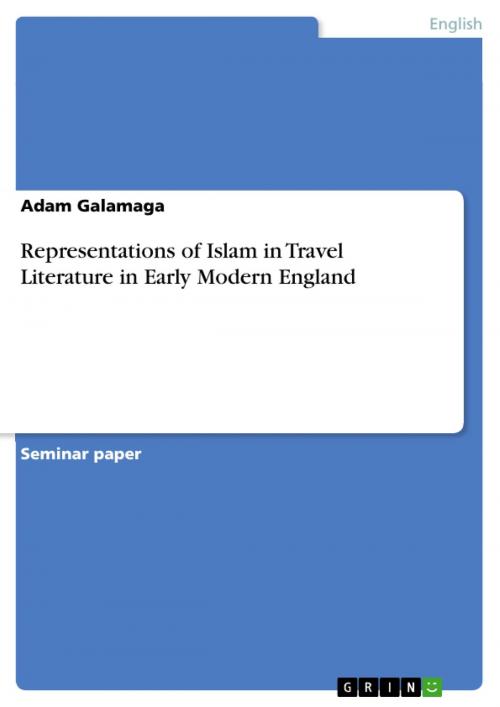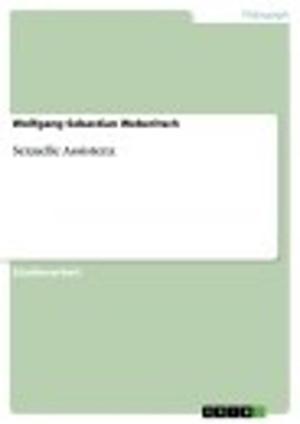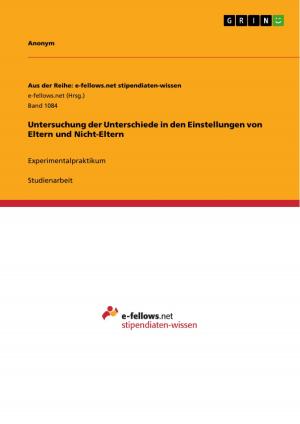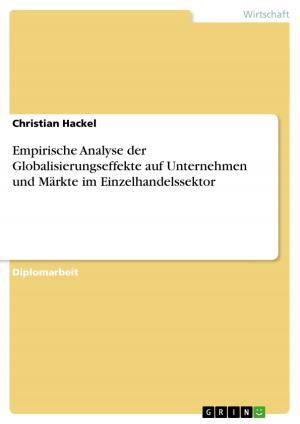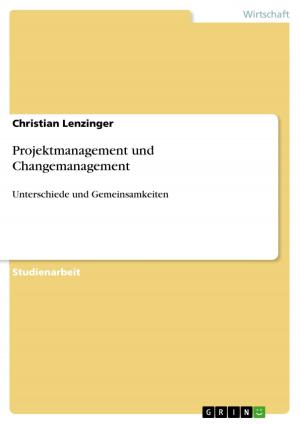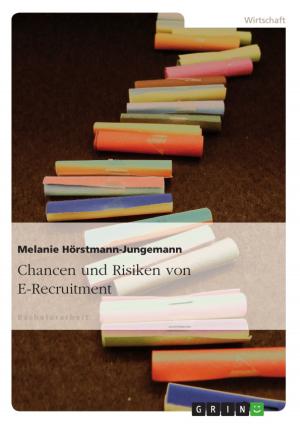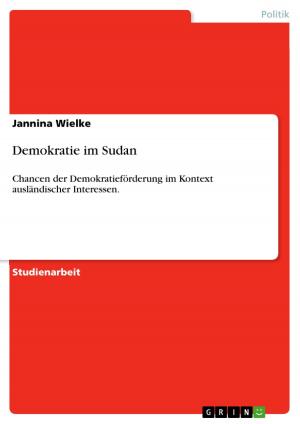Representations of Islam in Travel Literature in Early Modern England
Fiction & Literature, Literary Theory & Criticism, British| Author: | Adam Galamaga | ISBN: | 9783640920235 |
| Publisher: | GRIN Verlag | Publication: | May 19, 2011 |
| Imprint: | GRIN Verlag | Language: | English |
| Author: | Adam Galamaga |
| ISBN: | 9783640920235 |
| Publisher: | GRIN Verlag |
| Publication: | May 19, 2011 |
| Imprint: | GRIN Verlag |
| Language: | English |
Seminar paper from the year 2010 in the subject English Language and Literature Studies - Literature, grade: gut, University of Frankfurt (Main) (Institut für England- und Amerikastudien), course: Early Modern England & Islam 1560-1640, language: English, abstract: The 'troubles' with Islam in today's Europe concerning legal and social issues are accompanied by stereotypical visions of the Islamic world. Stereotypes and prejudices play of course a certain role in every representation or vision of the Other. In regard to Islam they are, however, of a particularly long and rich history. Already after one century from its emergence Islam was seen as a danger to Christianity. John of Damascus granted already in 8th century a complete, though totally ignorant view of the Muslim civilization. Muhammad was depicted by him as an Antichrist and he declared Islam to be a conspiracy against Christianity. The medieval reception of Islam is shown very accurately in the famous Divina Comedia by Dante, where the reader finds Mohammed placed nowhere else but in hell: '(...) see how Mahomet is mangled! Before he goes Ali in tears, his face cleft from chin to forelock; and all the others thou seest here were in life sowers of scandal and schism and therefore are thus cloven'. Untrue and unfair depictions of Islam in Europe are found in Catholic theology by Thomas Aquinas, who is still regarded by the Church as its most prominent philosopher. Ignorance about Islam may seem understandable as far as fear of religious challenge is concerned, since many critics of Islam felt it was their duty to defend the truth about God. Many of them depicted the Muslim culture in a completely wrong way because of the very fact that they had never been in real contact with that culture. More detailed investigations about what was behind the teachings would, however, needed to be based on direct encounter. Accounts on Islam based on personal experience would have been then at least more objective and neutral - but the opposite is the case. In the so-called travel literature depictions of Islam are full of bias, fears and unjust insinuations. The purpose of travel writing in early modern Europe was not to represent Islam as it was, but to prove the distinction between the good and evil, whereas Christianity was meant to be the good and Islam the evil. Representations or rather misrepresentations of Islam in English literature of the Early Modern Period in general and in travel accounts written in that time in particular are the subject of this paper. A general characteristic of travel writing on Islam is given, two selected accounts - by William Biddulph and William Lithgow - are discussed in a more detailed way.
Seminar paper from the year 2010 in the subject English Language and Literature Studies - Literature, grade: gut, University of Frankfurt (Main) (Institut für England- und Amerikastudien), course: Early Modern England & Islam 1560-1640, language: English, abstract: The 'troubles' with Islam in today's Europe concerning legal and social issues are accompanied by stereotypical visions of the Islamic world. Stereotypes and prejudices play of course a certain role in every representation or vision of the Other. In regard to Islam they are, however, of a particularly long and rich history. Already after one century from its emergence Islam was seen as a danger to Christianity. John of Damascus granted already in 8th century a complete, though totally ignorant view of the Muslim civilization. Muhammad was depicted by him as an Antichrist and he declared Islam to be a conspiracy against Christianity. The medieval reception of Islam is shown very accurately in the famous Divina Comedia by Dante, where the reader finds Mohammed placed nowhere else but in hell: '(...) see how Mahomet is mangled! Before he goes Ali in tears, his face cleft from chin to forelock; and all the others thou seest here were in life sowers of scandal and schism and therefore are thus cloven'. Untrue and unfair depictions of Islam in Europe are found in Catholic theology by Thomas Aquinas, who is still regarded by the Church as its most prominent philosopher. Ignorance about Islam may seem understandable as far as fear of religious challenge is concerned, since many critics of Islam felt it was their duty to defend the truth about God. Many of them depicted the Muslim culture in a completely wrong way because of the very fact that they had never been in real contact with that culture. More detailed investigations about what was behind the teachings would, however, needed to be based on direct encounter. Accounts on Islam based on personal experience would have been then at least more objective and neutral - but the opposite is the case. In the so-called travel literature depictions of Islam are full of bias, fears and unjust insinuations. The purpose of travel writing in early modern Europe was not to represent Islam as it was, but to prove the distinction between the good and evil, whereas Christianity was meant to be the good and Islam the evil. Representations or rather misrepresentations of Islam in English literature of the Early Modern Period in general and in travel accounts written in that time in particular are the subject of this paper. A general characteristic of travel writing on Islam is given, two selected accounts - by William Biddulph and William Lithgow - are discussed in a more detailed way.
